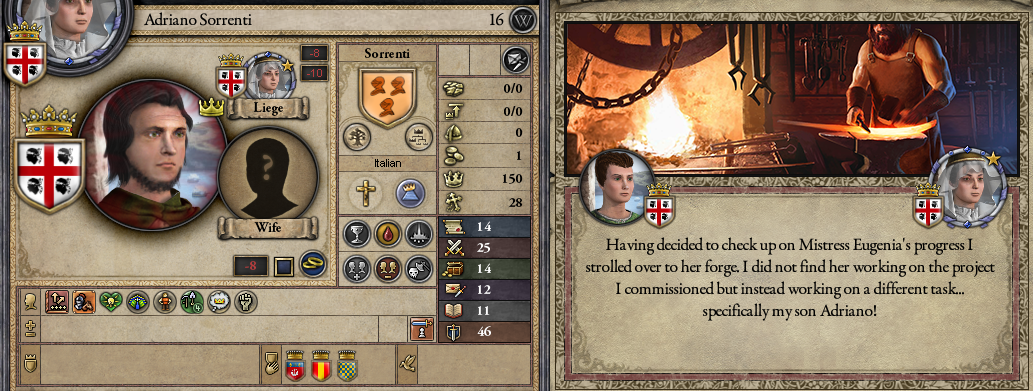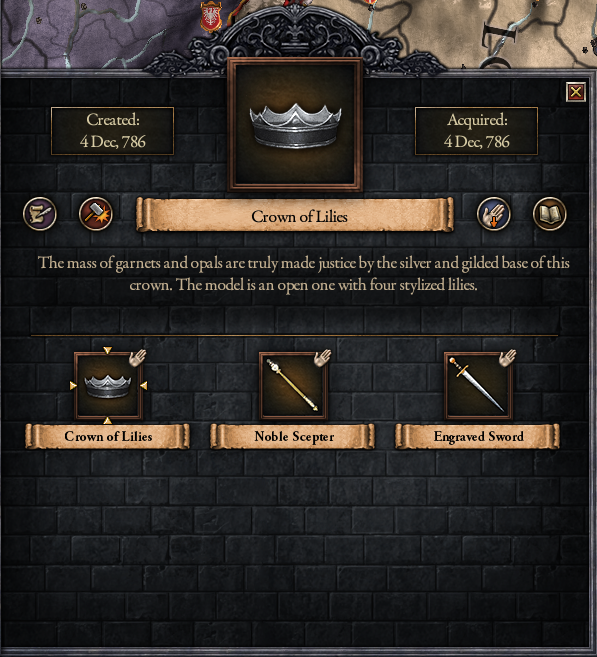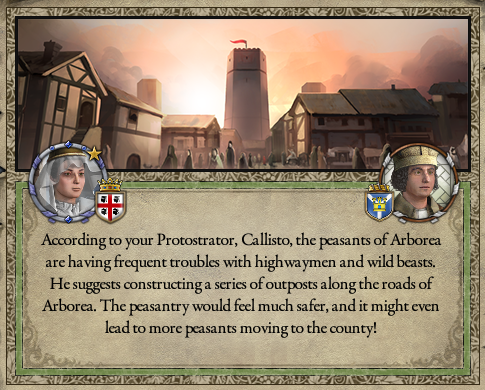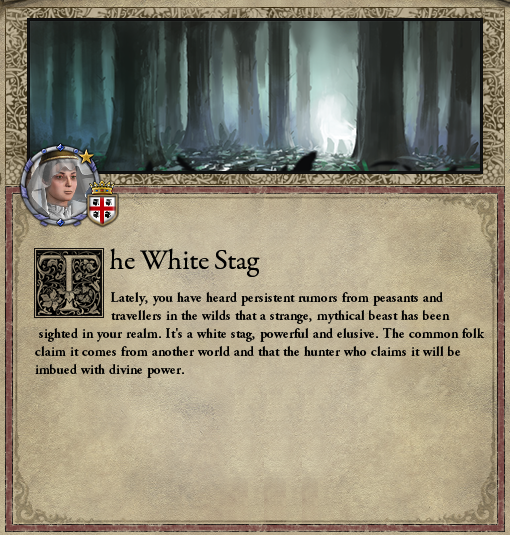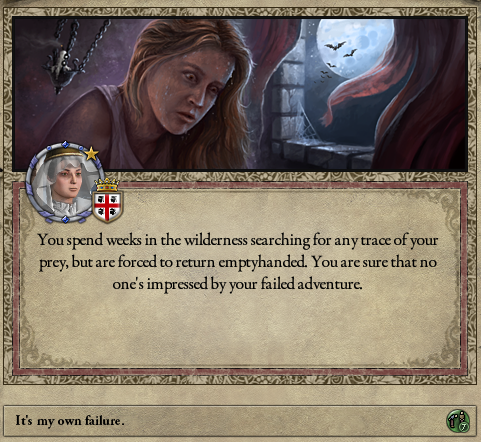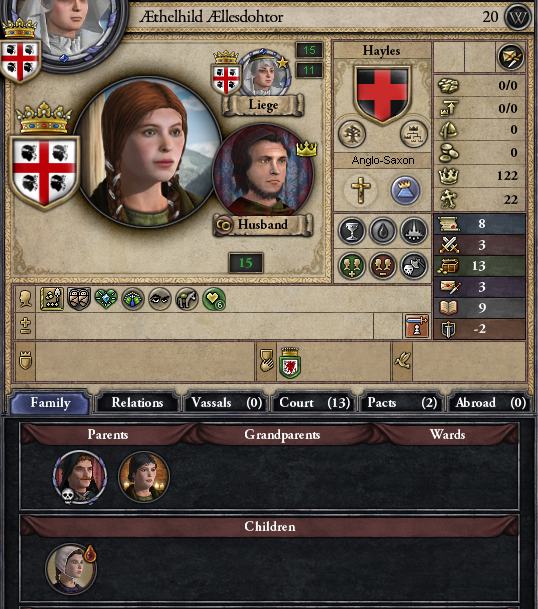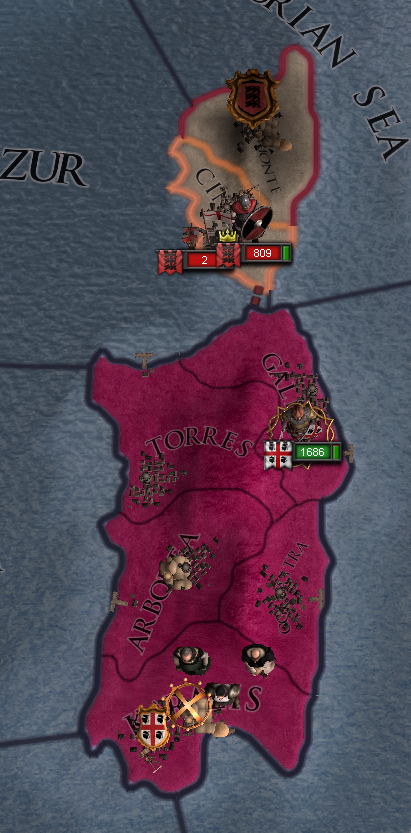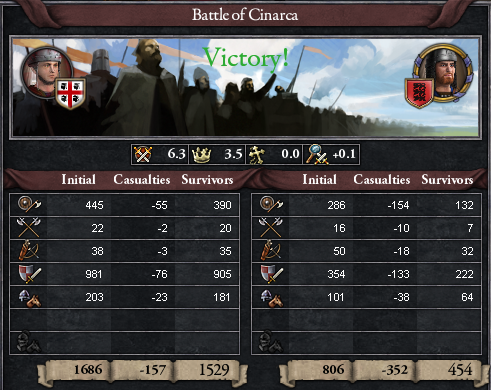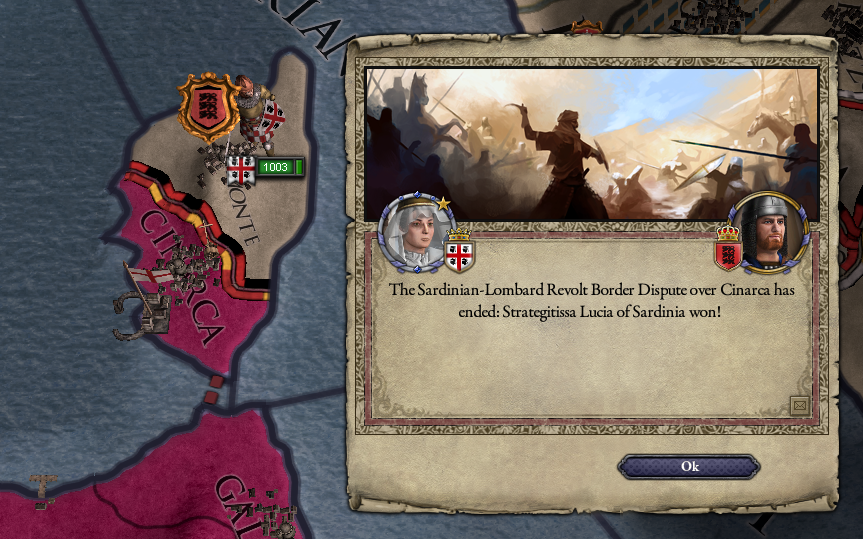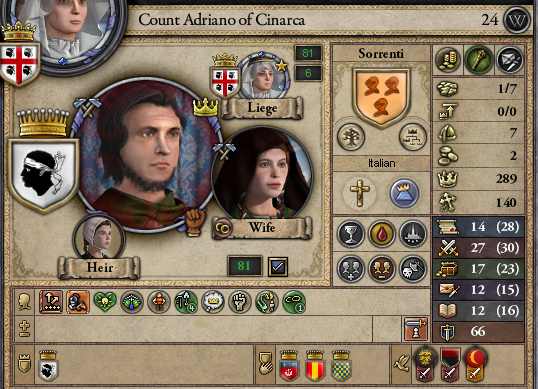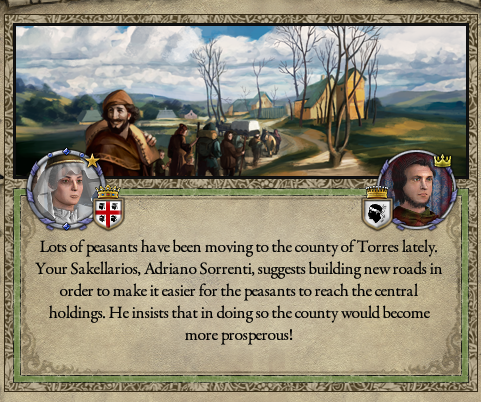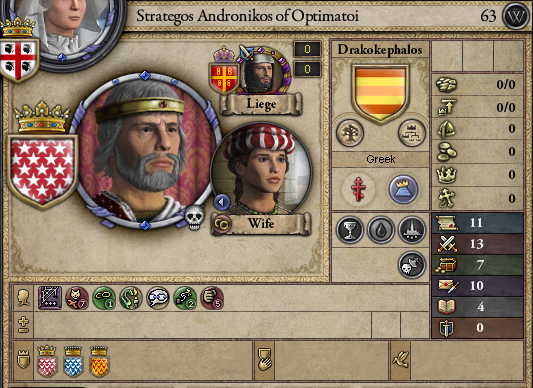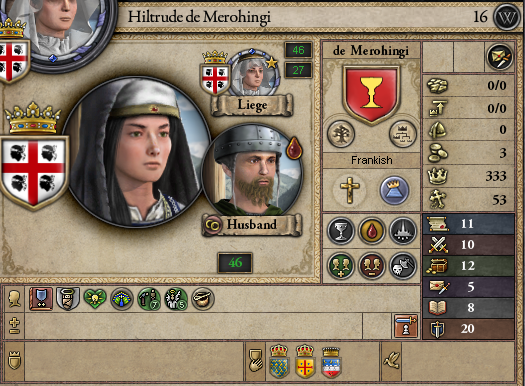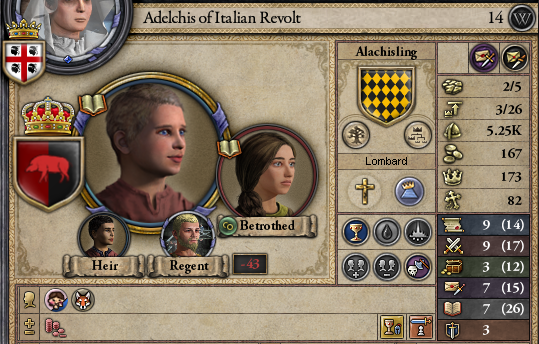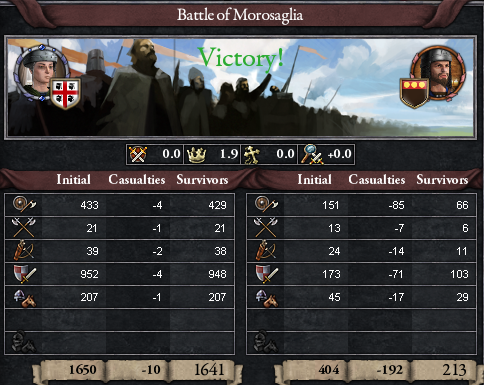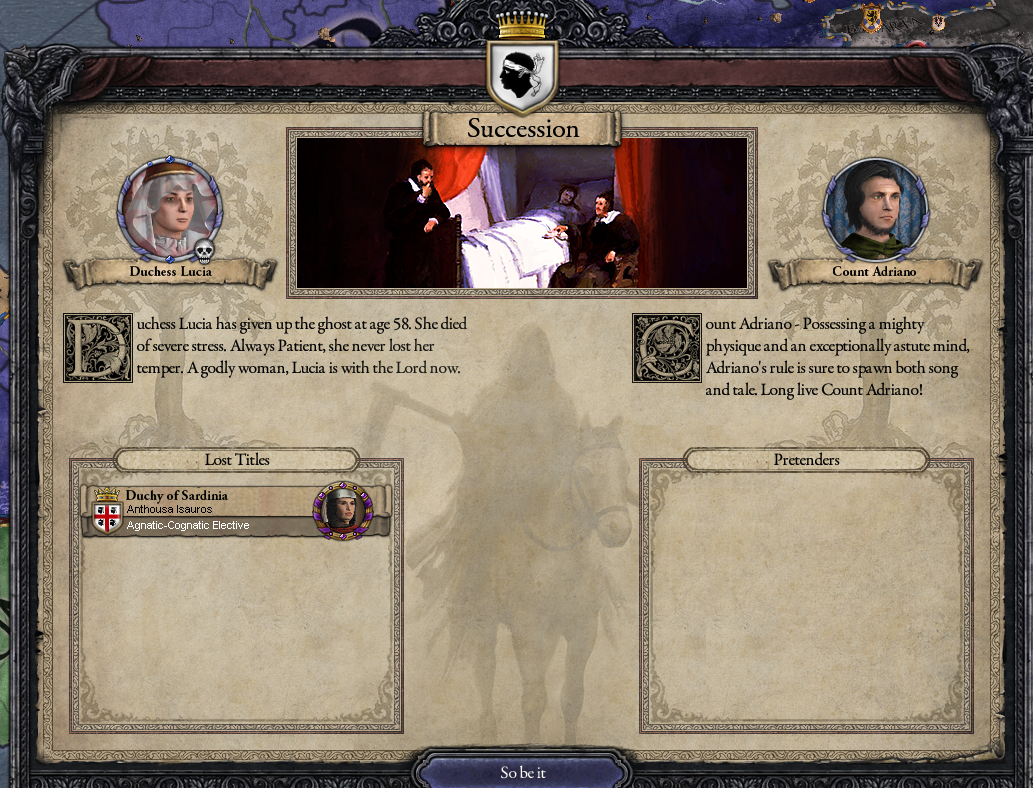Chapter 4 - The Black Sheep
It had only been eight months since Strategitissa Lucia had come back to Sardinia from her campaign in Greece, but those months had felt like years for her. She missed the thrill of battle, leading armies with dexterity against better trained and equipped enemies, and the sense of kinship soldiers develop with one another as they camp for weeks together. When she thought back to the war against Emperor Basileus is when she was happiest, for these were the years she spent with her dear Raynold, who was probably back in his home in Bern by now.
The demise of Count Euphemio laid the groundwork for total control of the island, as his realm had been split, and the children could pose no resistance. In a twisted way, she had wished he was alive to raise his men against her, for she yearned for the battle.
As if God himself had heard her pleas, Byzantine envoys arrived in Cagliari, demanding once more for Lucia to appear before the Emperor and relinquish all land and titles. Most of her court was afraid, for Emperor Nikephoros was much younger, shrewd, and capable than his father Basileus. This did not phase Lucia however, eyes now sparkling with determination. This was what she needed to feel alive once more, she only wished Raynold was there with her.
Many of the nobles who had previously revolted against Basileus, as well as some other who preferred the previous Emperor, were quite unhappy with Nikephoros, as it had not even been a year since his father had been deposed. They considered him a truce breaker and once more raised the flag of rebellion.
Rebellion 2.0 in green, November 775
If the first rebellion proved anything, it was how crucial a navy was when fighting overseas, thus after coming back from Greece Strategitissa Lucia ordered the construction of a navy capable of ferrying her men across the Mediterranean and back. Stone walls around Sardinian cities would not be necessary if there was a strong enough wooden wall to guard its shores.
Emperor Nikephoros did not give the boat builders enough time to finish the fleet however, and once more the dilemma of how to join the rebellion appeared in the court of Lucia. Letters were sent to Nikomedia, hoping Andronikos might be able to send some ships to carry her men, but none returned.
The men of Sardinia were itching to fight alongside their famed "Warrior-Queen," as many poems and songs called her (despite the fact that she was not a queen), and the prospect of her travelling on her own once more was something they could not accept. Thankfully for them, a man named Oreste appeared before Lucia. "I am Oreste, captain of a newly formed mercenary company. I offer your our services as we are Sardinian, just like you my lady."
This mercenary leader did not inspire Lucia any confidence, at least not the way Raynold had previously done. He however offered Lucia many ships, which could help her and her troops sail to Greece. When she asked how much their services cost, he said that such things could be discussed once the war was won, for their priority now was the continued well-being of Sardinia. Lucia agreed, although she grew distrustful, for mercenaries always put gold above all, even family.
As the armies of Lucia prepared to sail with the mercenaries, she saw no sign of the men of the late Count Euphemio. The regents for his sons had promised to send men, but they had not arrived yet. Oreste implored her to sail without them, as whatever few men could muster was not important enough to postpone the journey. While the words spoken by Oreste were true, she noticed how anxious he had seemed during their exchange. She declared that they would wait for two more days, and then depart, that would give them ample time to arrive, and if they didn't, they would march North and demand their armies to come, whether they wanted or not.
As the sun hid over the hills of the first of two days, Lucia had seen strange, cloaked men come in and out of Oreste's tent multiple times, and Oreste seemed shaken by whatever those men would tell him. Lucia wanted to find out who those men were, but Oreste seemed to have been avoiding her. Suspecting something was up, Lucia woke up a few of his most trusted men, and left camp toward the lands of Euphemio's sons, where she suspected these cloaked men where coming from.
Just as they were exiting the camp, a great fire erupted from where her men were encamped. Multiple screams and the sounds of shields clashing were heard. Not knowing what was happening, Lucia and her men rode back to camp, only to see Oreste's men slaughtering hers. She and her men hurriedly galloped back to her castle before anyone could see them.
----------------------------------------------------------------------
"Preparations are ready, yes?" said Mayor Barnaba, regent and spymaster for Alessio, the son of the late Count Euphemio. "Yes, the Greeks have sent us large amounts of armor and weapons, as well as some great warhorses my lord. There is also a small sum of gold, which I'd like to talk about... My men sure love their new toys, but what we're all after is coin-" said Oreste of the newly founded Sardinian Company, before being interrupted by Mayor Barnaba. "Yes, yes, you may keep it all and give it to your men, after we're done with lady Lucia, we shall fill our treasuries with the coffers of Cagliari."
Mayor Barnaba, regent for the Orestani brothers.
Mayor Barnaba had been a close friend of the late Euphemio, and when he was on his deathbed he asked him to care for his sons, and to rid Sardinia once and for all of the Sorrenti. Despite his lowborn status, Mayor Barnaba had close friends in many courts of the East, including that of the newly crowned Emperor Nikephoros. Knowing full well of the wrath he had against Strategitissa Lucia, Barnaba proposed to Nikephoros a devious plan to kill her, and her men.
They would have the armies of the Orestani brothers equipped with Byzantine steel, pose as a new mercenary company, offer their services to Lucia, lure her into their ships, and while they were at sea, they would slaughter them all. Nowhere to run, nowhere to go. This plan nearly succeeded, but Oreste's behavior gave away that something was up and Lucia managed to escape.
Regardless of that, nearly all her men were dead, and the Sardinian Company stood at the gates of Cagliari.
With her army now laying dead, there was not much Lucia could do, and yet she still wished to go back to her castle in Cagliari, for her daughter Cecillia was there. She did not care at all for her husband, and her son Adriano was a reminder of Remigius, and of her infidelity, the only worry on her mind was Cecillia.
Her men advised her against going back to Cagliari, and to instead head North toward the city of Tortoli in Ogliastra, where they could find a transport to take her into the lands of the Emperor. She alone could not relieve the siege of her lands, but her leadership could prove useful to the rebellion in Greece and Asia Minor. They also reminded her of her son Achille, who was under the care and protection of Andronikos, and who also needed her. She reluctantly agreed.
----------------------------------------------------------------------
Lucia and her men arrived near the city of Marioneia in Thrace, where a small contingent of rebel troops had assembled to mount a siege. When the generals recognized who she was, they put her in command, and travelled East, where a much larger siege of Constantinople was taking place.
It had seemed that while the young Nikephoros was a capable warrior, he was no Alexander Magnus. Most of the great Byzantine generals had fallen during the first rebellion, and what men Nikephoros had left were no match for the battle-hardened noble rebels. While Oreste and Barnaba plotted the downfall of Cagliari, Andronikos and the other rebels had defeated nearly all Byzantine armies. The city was wide open for a siege.
Once the city of Marioneia fell in October of 776, its docks opened once more and a message arrived from Sardinia. It seemed that while Cagliari itself had not yet fallen thanks to the leadership of Remigius, this was not to last. With so many dead and injured inside, and everyone cramped inside the walls, camp fever started easily spreading, catching Lucia's husband as one of its many victims. Her baby girl Cecillia had also contracted dysentery and they did not know if she could recover from it at such a young age. Things seemed bleak for defenders.
If the Sardinian Company doesn't kill them, illness just might.
Lucia fell remorse for leaving her people behind, especially for the baby Cecillia, whom she hardly spent any time with. Regardless, it was now time to join with the attackers in the capital. If Constantinople fell, Barnaba and Oreste would have no choice but to surrender, and then, she'd make them pay.
On her way to Constantinople, Lucia and her army stopped outside of the city of Madyta, in Kaliopolis to re-organize her troops and re-supply. This was cut short as they spotted a contingent of Imperial forces exiting the city. These men were no strangers to Lucia, it was Nazareno and his men of the Sardinian Band, a much older and established company than Oreste and his men. It seemed as if they had been hired by Nikephoros as well, much to the dismay of Lucia.
Captain Nazareno of the Sardinian Band
A small skirmish ensued, and while Lucia and her troops had nearly twice as many soldiers, they were all weary from Marioneia and the march to Kaliopolis, thus Nazareno and his men fled South across the Dardanelles, to Abydos. Abydos was formally allied with the rebels, but in reality they had remained neutral during the war, thus allowing Nazareno and his men to camp and fortify their position. After a few days of rest, Lucia and her army ferried across the Dardanelles, where they would face the now secure and ready Sardinian Band.
Lucia's trek across the Dardanelles, December of 776
Nazareno had placed many caltrops and spikes on the beaches of Alexandria Troas, the site of his camp, he had also ordered many of his archers to station themselves on top of some bushes by the camp, where they could ambush and shoot at Lucia's men from the back. Nazareno was not a great warrior, but he was a clever strategist.
Knowing full well of Nazareno's reputation as a great general, Lucia gathered her generals and asked any and all of the soldiers to step up if they had any ideas on how to overcome the situation. One man named Simonetto suggested to fill some sacks with hay and grass and put armor over them, tying them to horses and having them ride unto battle. They all knew cavalry would be ineffective in this battle, and they were sure to step over many caltrops as well as to distract many archers by drawing fire to them.
Simonetto, being promised a spot in Lucia's court once the war was over
It was a very unorthodox strategy, but the betrayal of Sardinia by Nazareno and his men had made the conflict personal. Lucia agreed, and just as Simonetto predicted, the fake riders were drawing arrows from Nazareno's archers, the same ones he had hidden on top of the trees, they also cleared a path for her army to run through, free of caltrops. This strategy compromised the tree archers of Nazareno, for now Lucia and her men knew of their hiding spot and quickly let a barrage of arrows at them.
The battle seemed to be going well, their fortified position certainly prevented the numerically superior army from overrunning them, but many of its traps were rendered useless by Simonetto's strategy. As the battle progressed however, Strategitissa Lucia soon realized most of the men around her were falling to the enemy. Nazareno realized Lucia was attacking from the flank, and set his best men to counteract her offensive, soon enough the experienced mercenaries started breaking the lines of Lucia's regiment.
It seemed like they had spotted her, and Nazareno himself seemed to be heading her way.
There were at the very least ten men surrounding her, and despite the great confidence in her skills she knew she could not take them all on. "Nazareno," she said, "Do you really need all these men to take me on? Let's do it, you and me, one on one. Show your troops what kind of general you are." She hoped this would bait him unto a duel she could surely win. Nazareno knew what she was doing, for he had heard tales of her great skill in battle. Regardless, his men only followed the strong, and if he ran away from a duel with a woman, no man would respect him again.
"You've betrayed your people, your land. You've betrayed yourself, for you are a piece of Sardinia yourself." Said Lucia. "Enough talking, come at me," responded Nazareno. Nazareno towered over her, he was a great, bulky man, some said he had enough strength to choke a horse. Lucia could see that, and instead of trying to fight him straight on, she swiftly avoided his attacks. Soon enough Nazareno was panting, as moving his greatsword around was no easy task, this went on for a bit more, until she saw the right moment and stroke at his leg. Nazareno fell to his knees, then he kneeled over, face down on the ground. "Do it," he said, as Lucia then stabbed him in the back, killing the man.
By the time the duel was over, some of Lucia's men had realized what had happened and came to her aid, soon the ten or so men around her were killed, and with the death of their leader, the mercenary company dispersed into the Anatolian hills.
The aftermath of the duel
----------------------------------------------------------------------
After the battle was over, Lucia and her men regrouped and set up camp where Nazareno and his men had camped the prior night. She started to reminisce about the last time she had crossed the Dardanelles, she remembered Raynold, and hoped to reach Nikomedeia soon, to see her child Achille.
Some of the men were celebrating, and asked Lucia to join in, for she seemed somber and upset despite the great victory. She was also one of the few men in camp, and thus greatly drew the attention of every man. She decided it was perhaps time to move on, and joined the fun.
Lucia, realizing she still had it
The army readied to march toward Nikomedeia, where she could finally see her son, but instead an envoy reached, bringing news of scouts seeing Emperor Nikephoros in the city of Bithynium, and so the army marched East toward Bithynium. On the way they encountered another rebel army, which was on its way to Trebizond, when Lucia told them of Nikephoros, they joined and marched on.
The combined armies finally reached Bithynium in February of 777, and encountered a small army led by the Emperor himself, the battle was over quickly, but when the dust settled the Emperor was nowhere to be found.
The rebel armies dispersed over the Anatolian hills and countryside, scouring for any trace of the Emperor for over a year, and eventually in June of 778 they found Nikephoros, once more by Bithynium. Except this time he would not be able to run, and all his forces would be slaughtered.
Emperor Nikephoros' capture
Now in chains, Emperor Nikephoros was forced to submit to a similar treaty as his father's had three years ago. The imperial crown, as well as all his lands would be forfeited to his brother, Christophoros, he would be exiled to Hispania, and every noble house in the rebellion would be monetarily compensated with gold, as well as exemption from taxes for a year.
The newly crowned Christophoros, July 778
Peace had come to the Empire once more, but Lucia did not yet know of the state of her beloved island of Sardinia.
----------------------------------------------------------------------
And that's all folks! (for this chapter at least

)
The Isauros have really been giving me a hard time this campaign, but the second rebellion was much easier due to how battered up the empire was. Nikephoros hiring the Sardinians really shocked me, but it fits quite well!
Thanks for reading!
 .
.


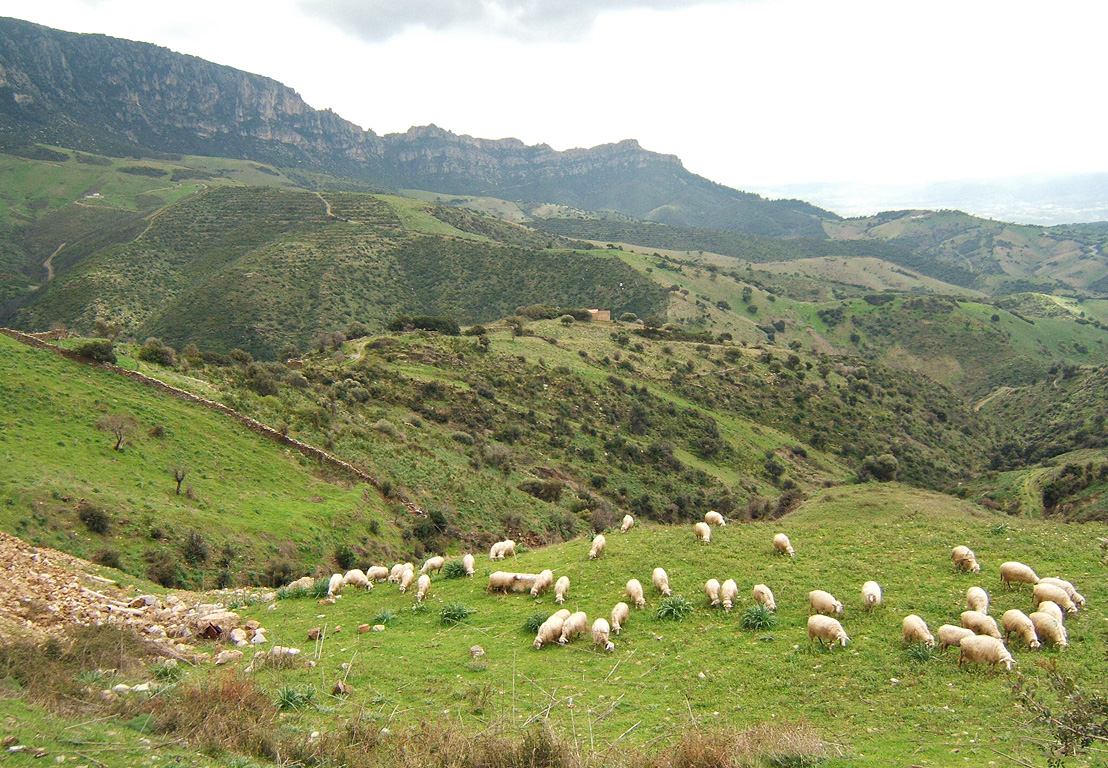

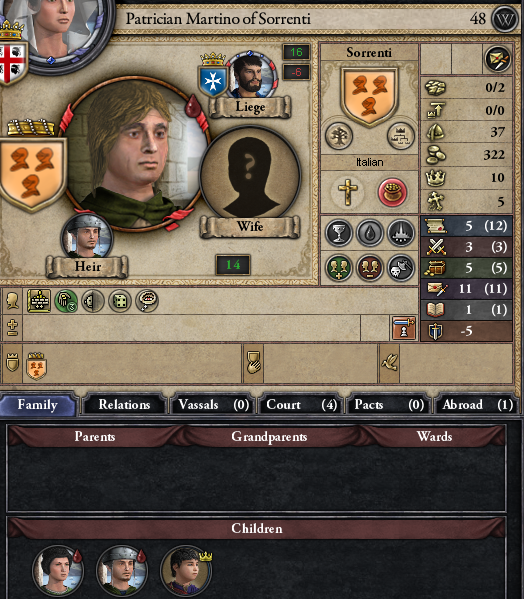
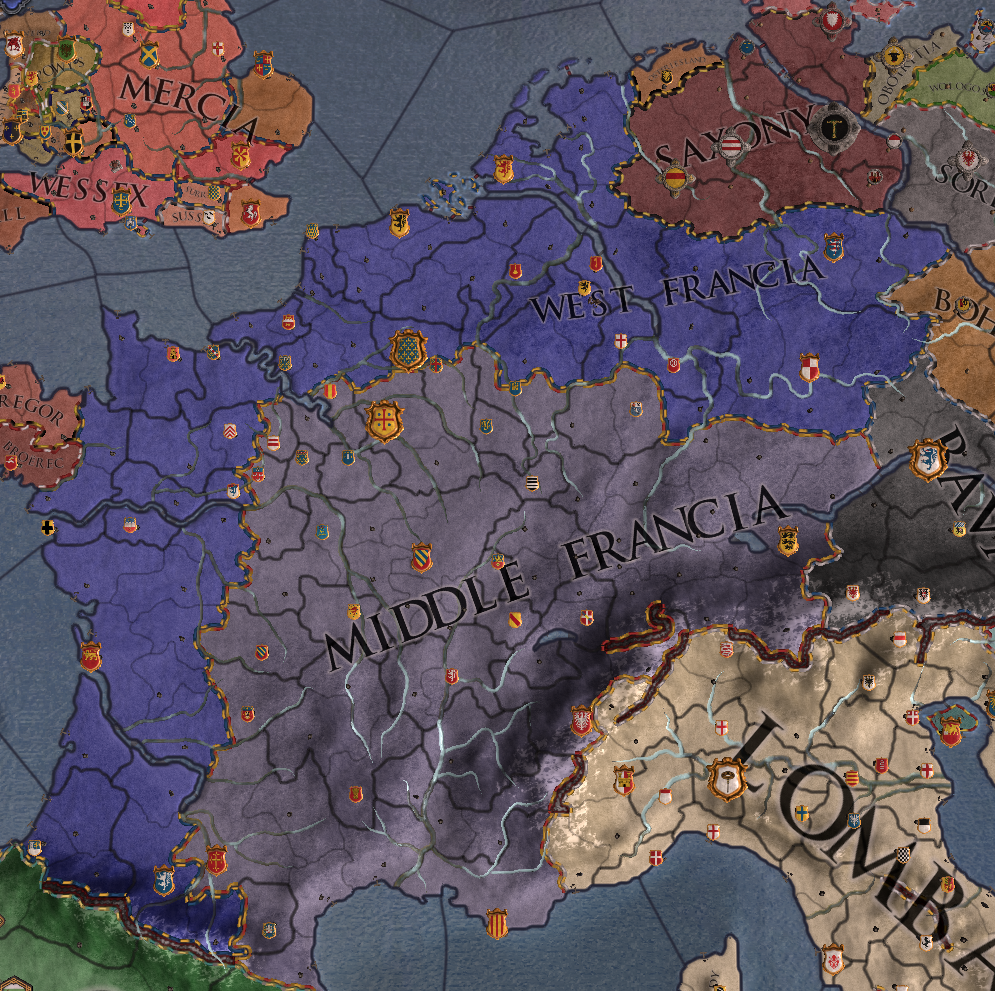
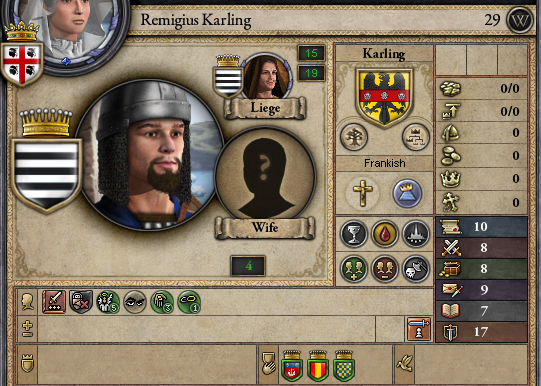
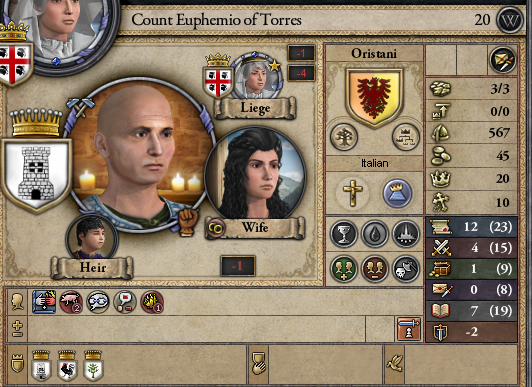
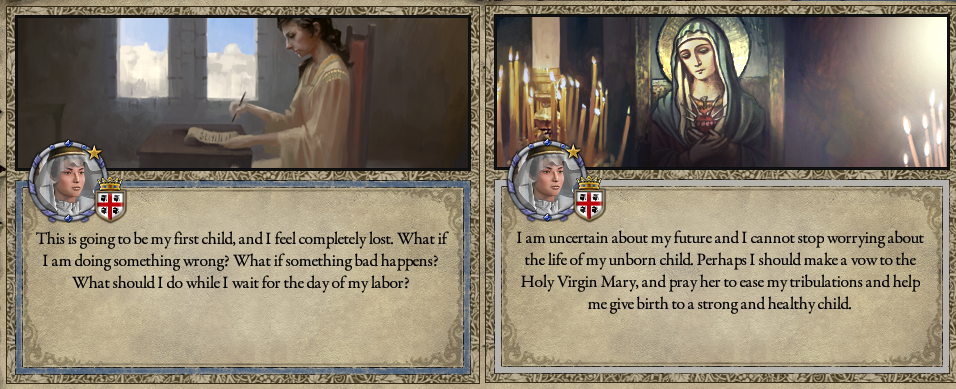
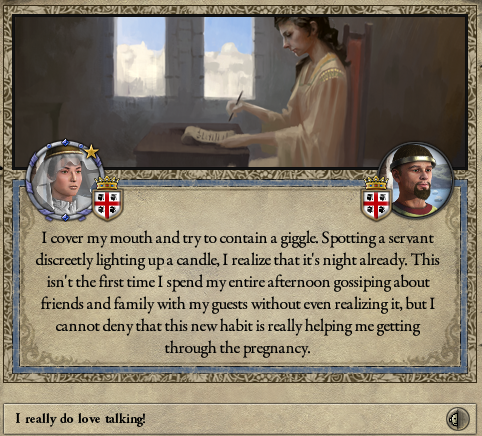
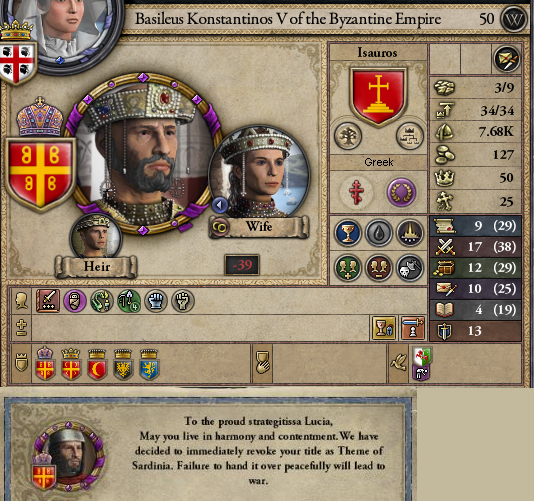
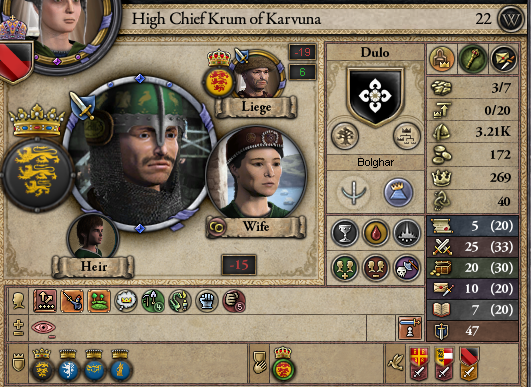
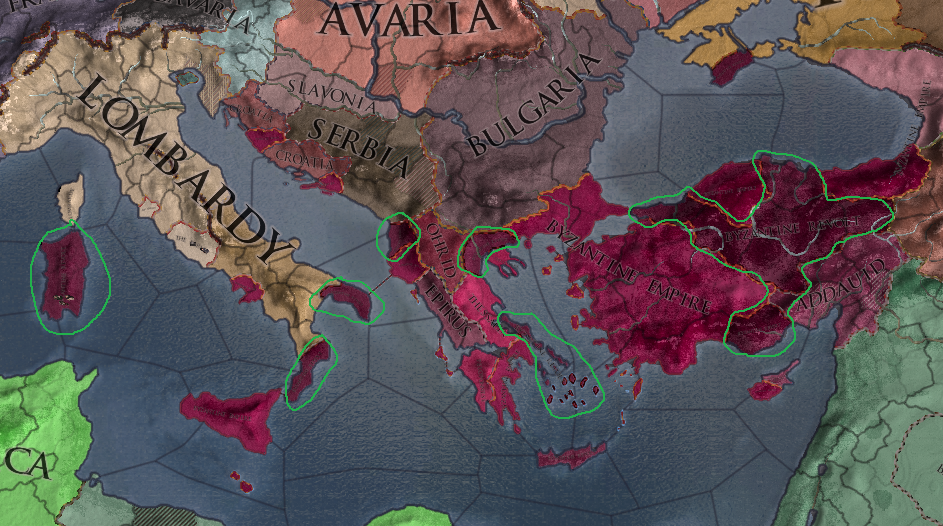
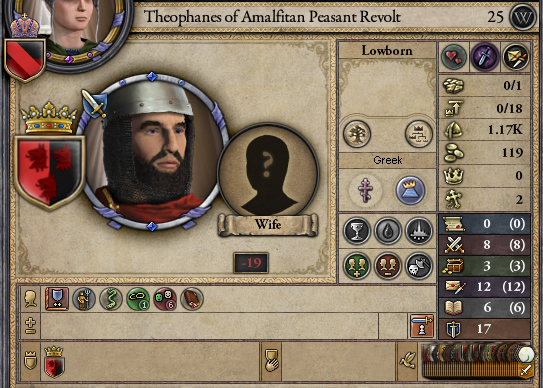
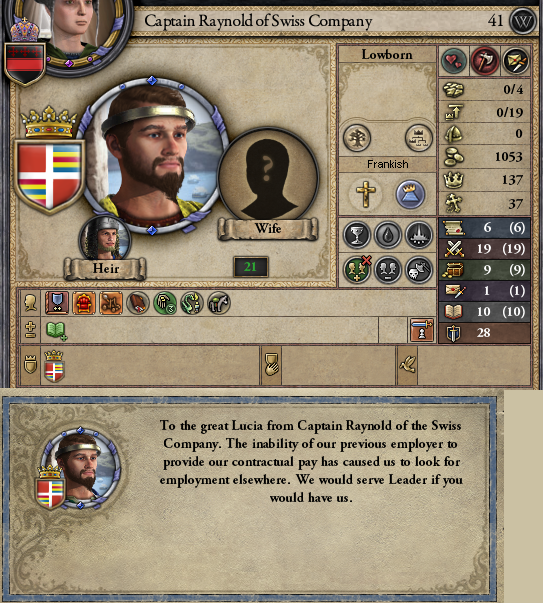
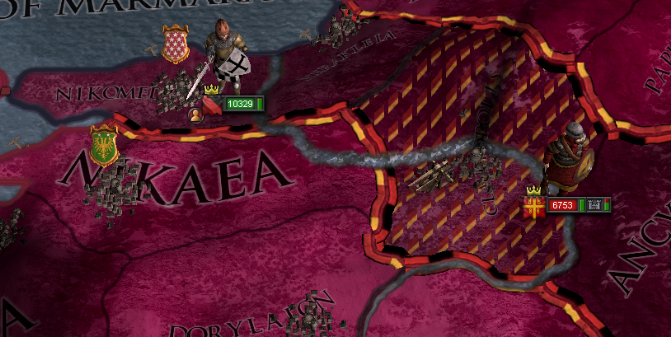
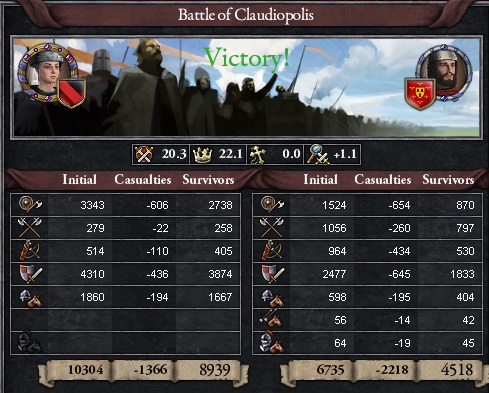
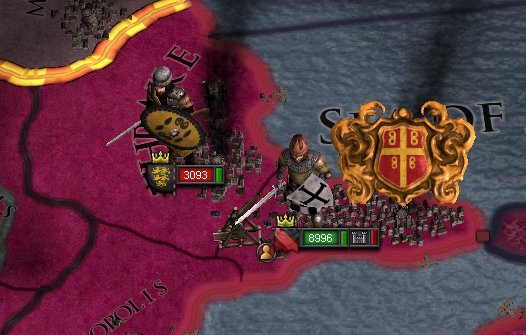
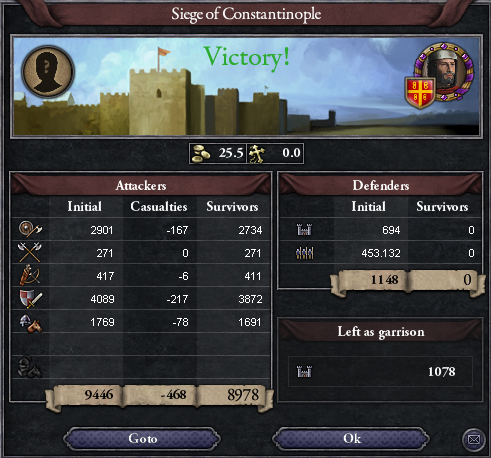
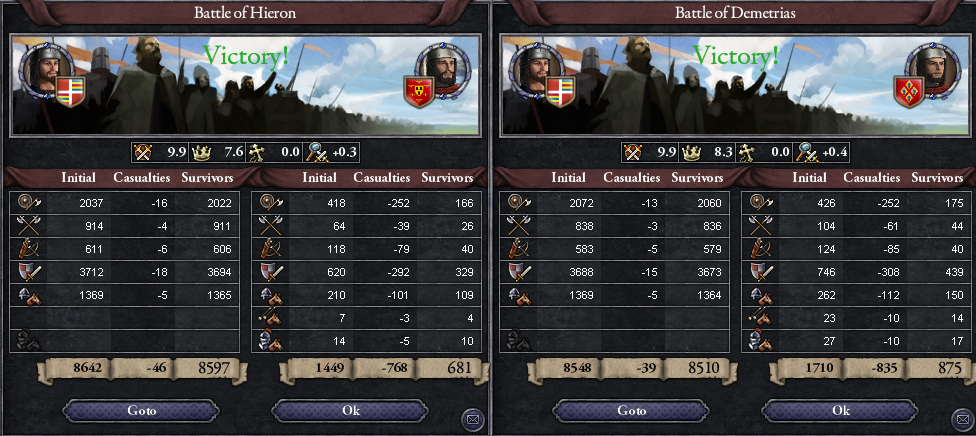

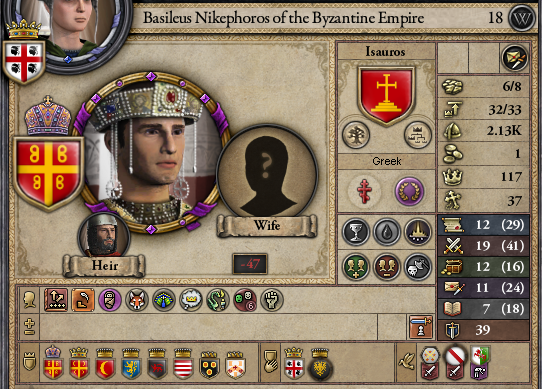
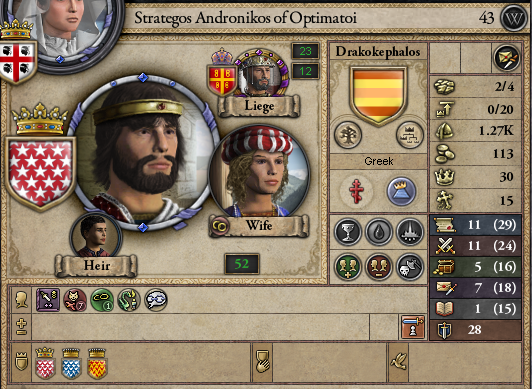
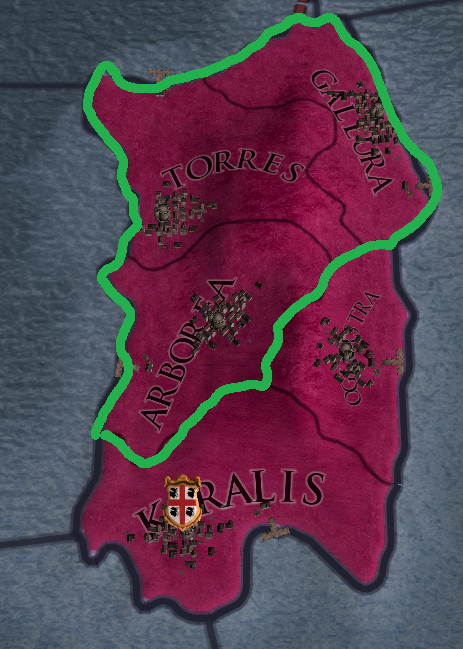
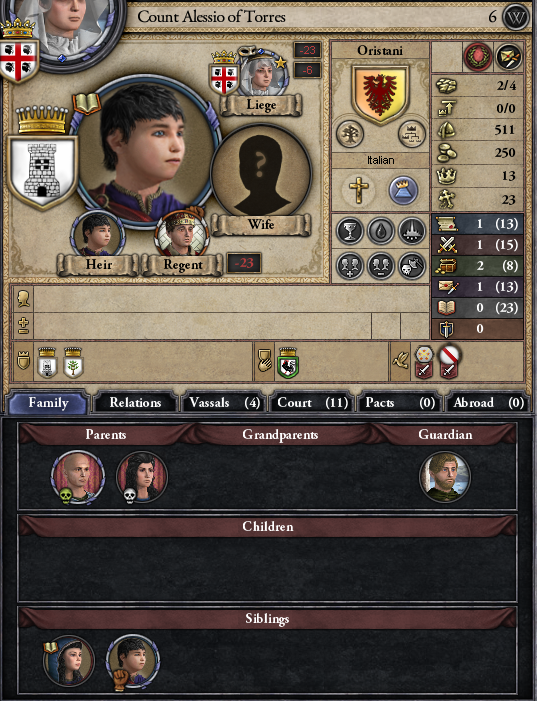
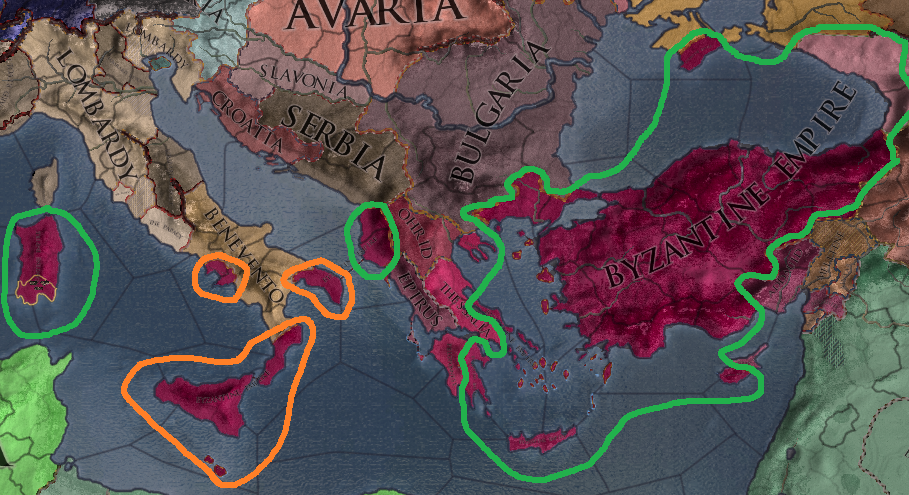
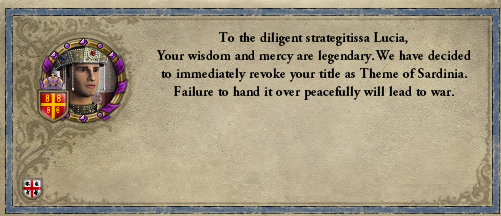
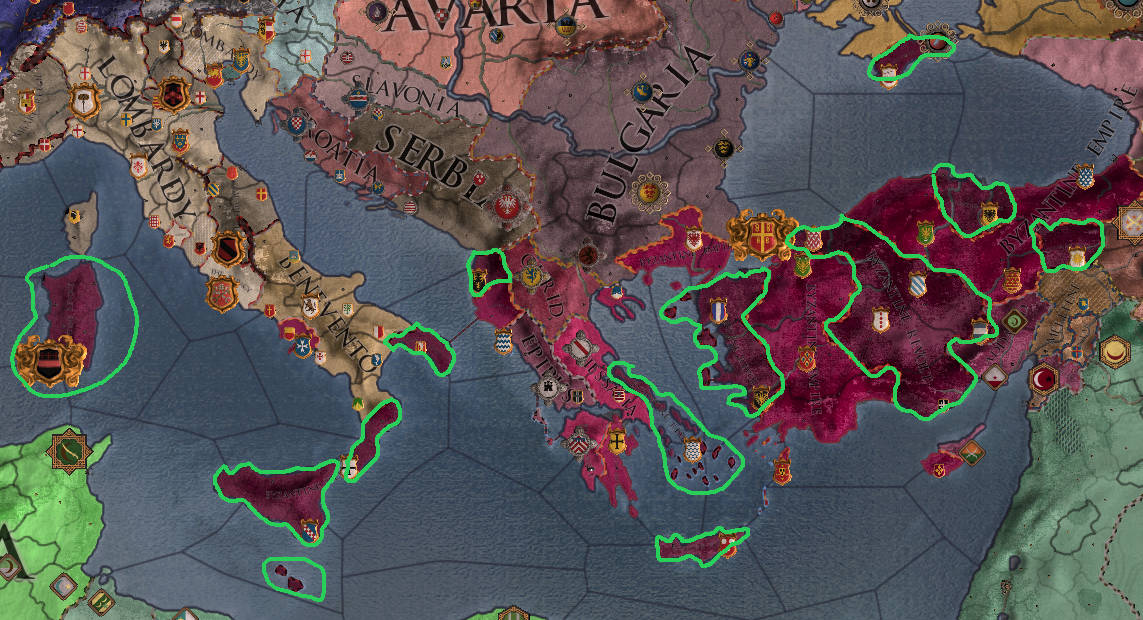
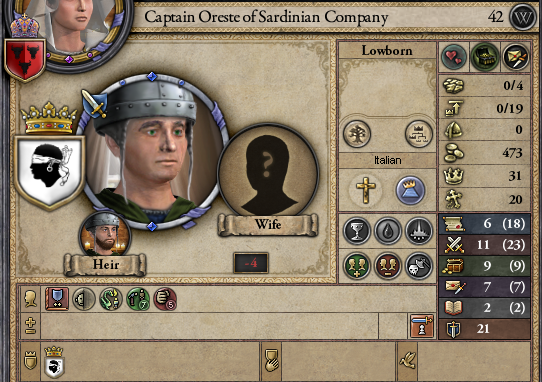
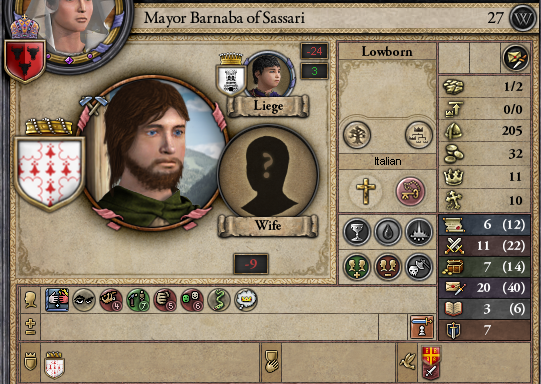
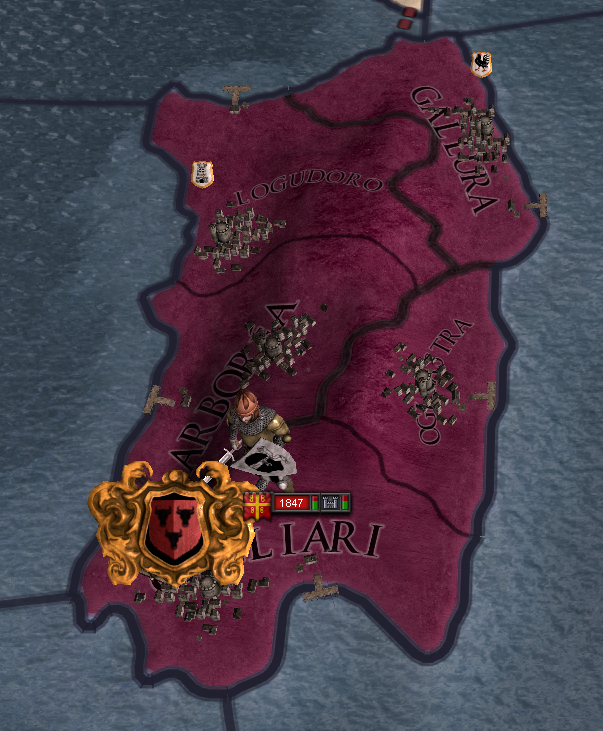
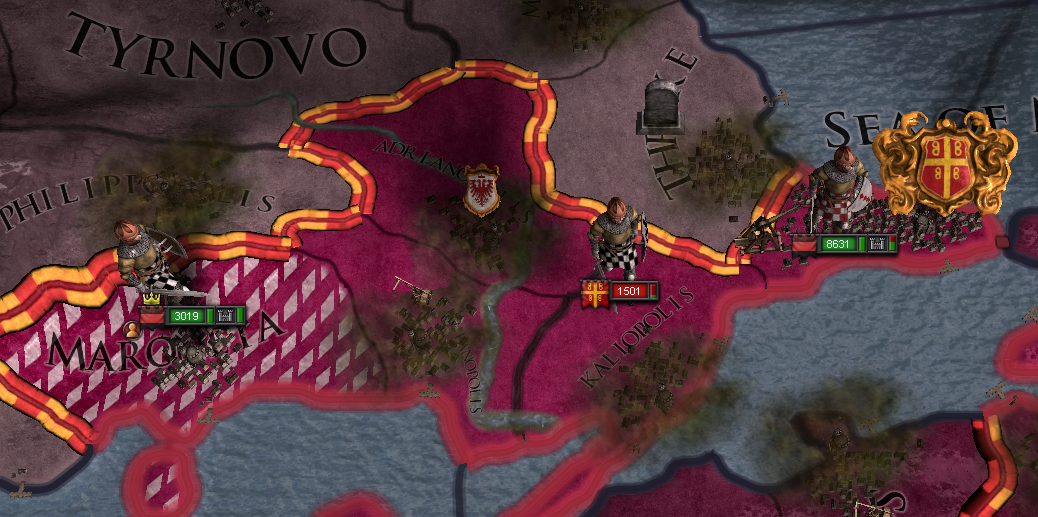
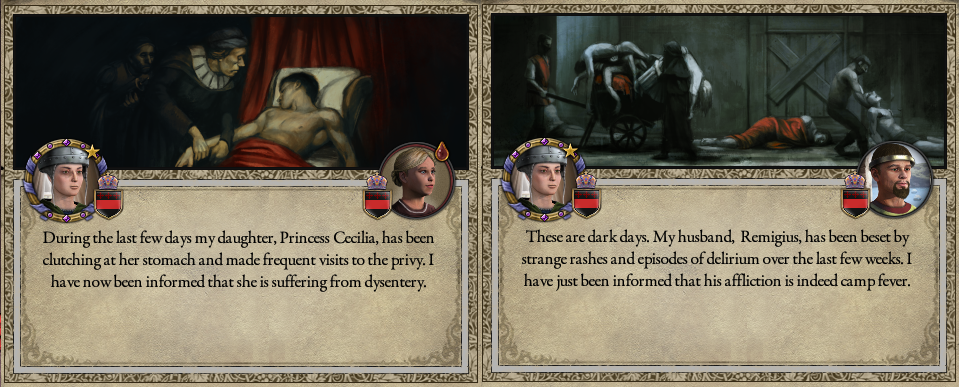
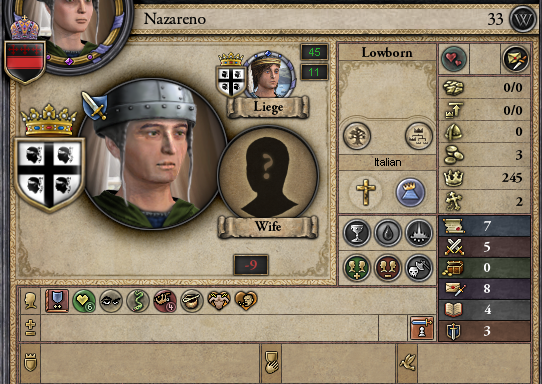
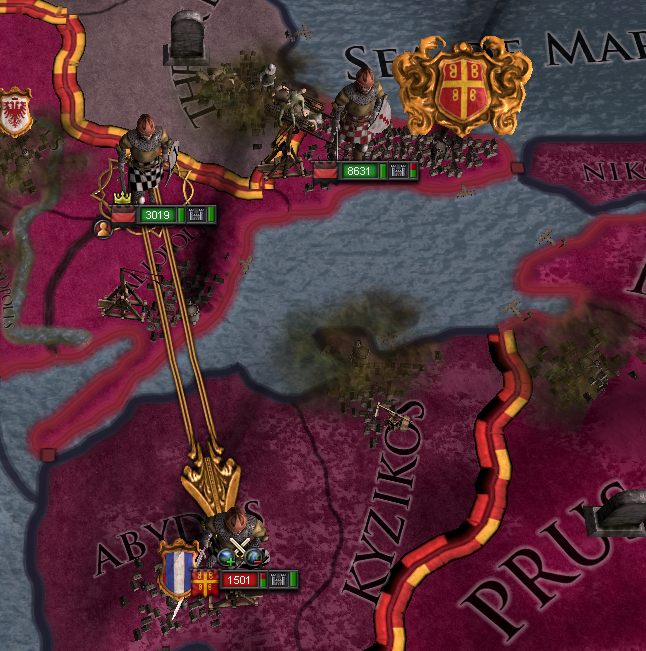
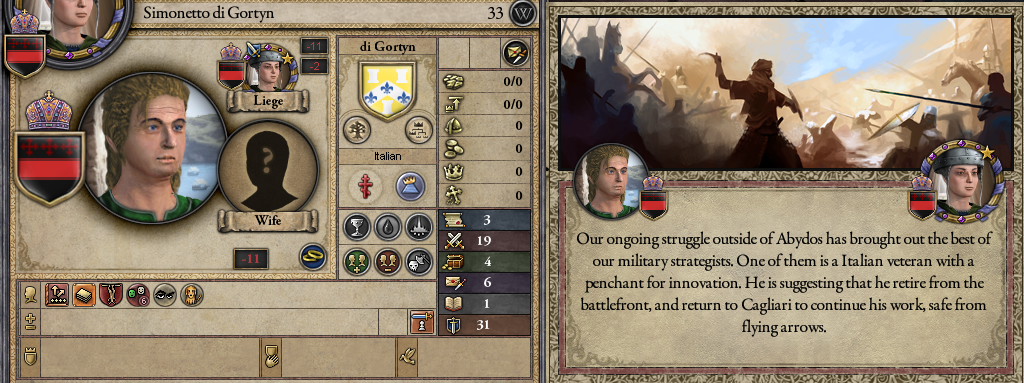
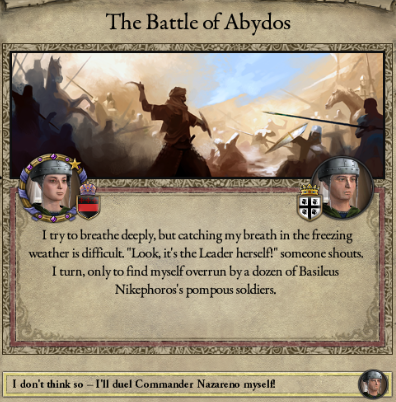
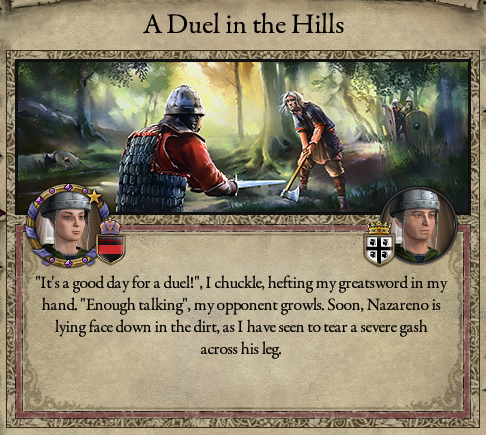
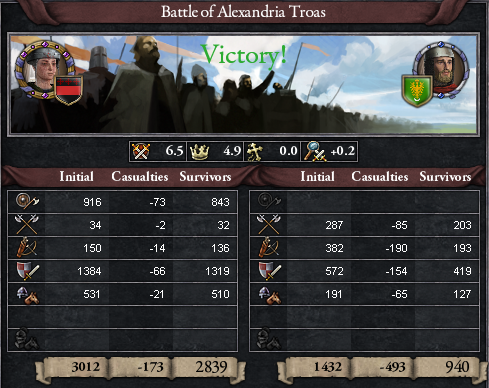

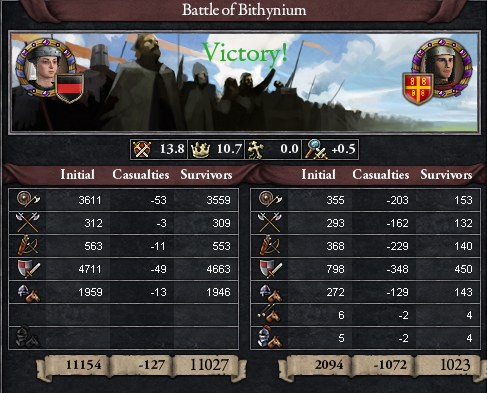
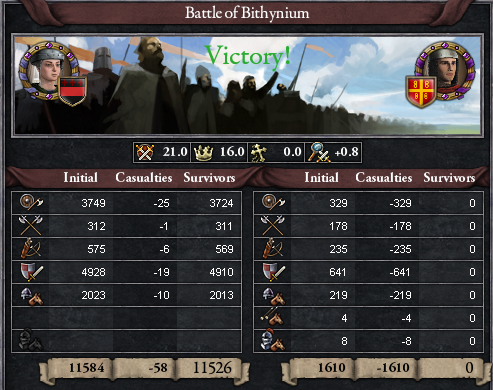
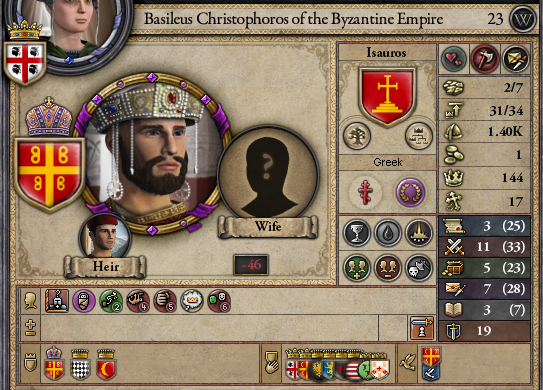
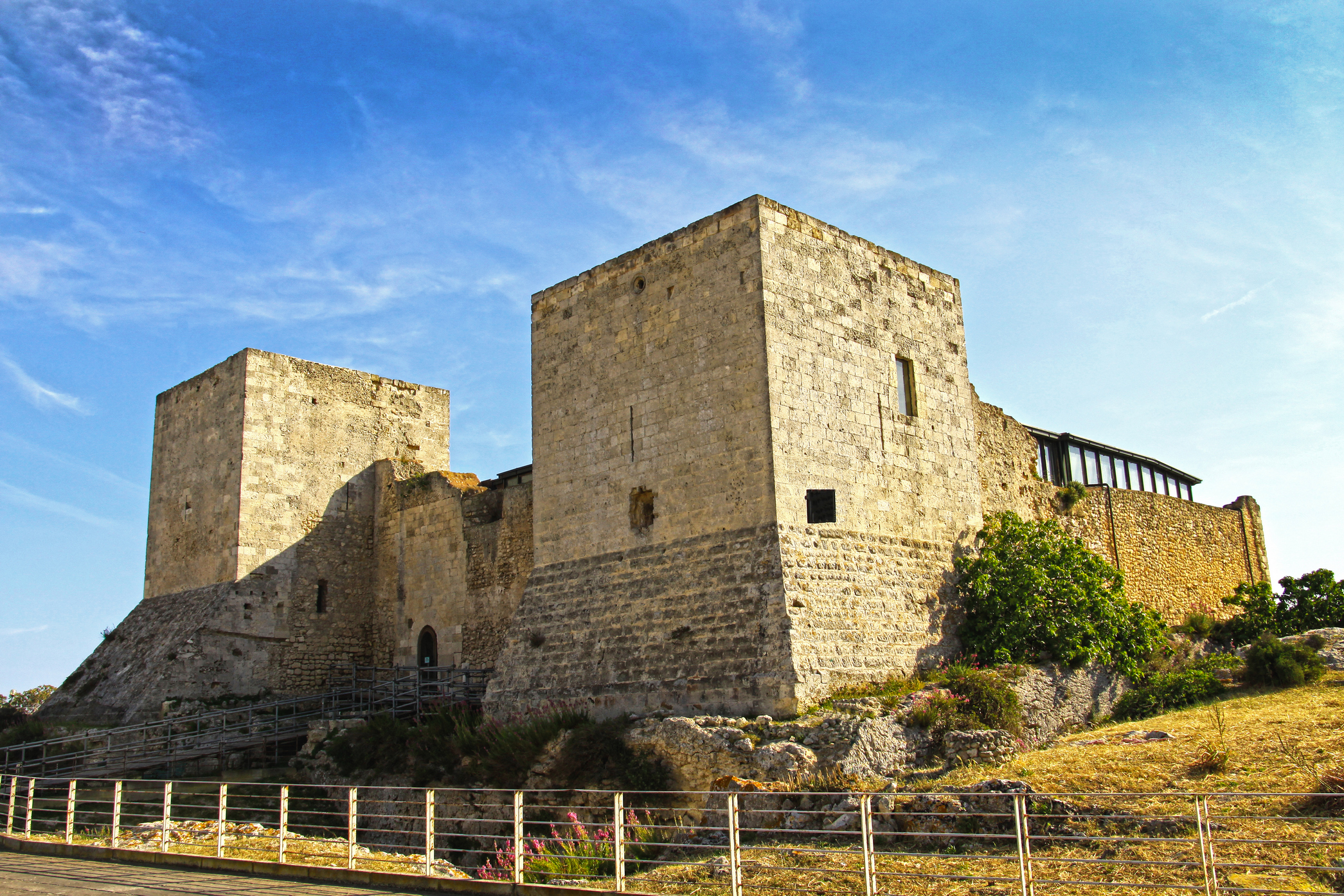




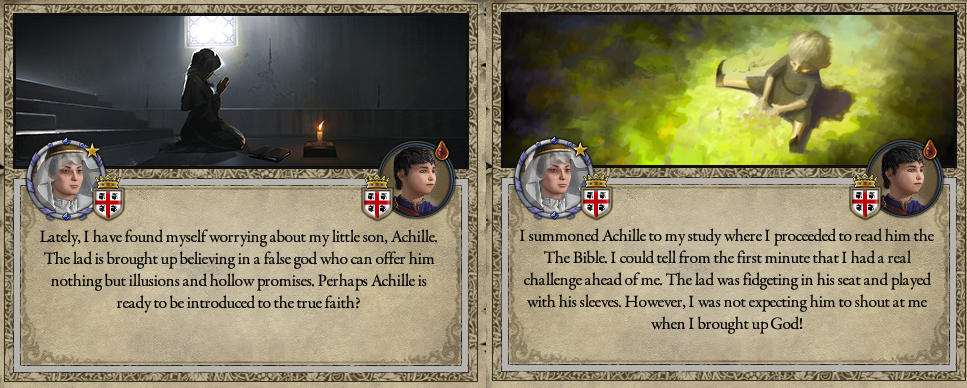

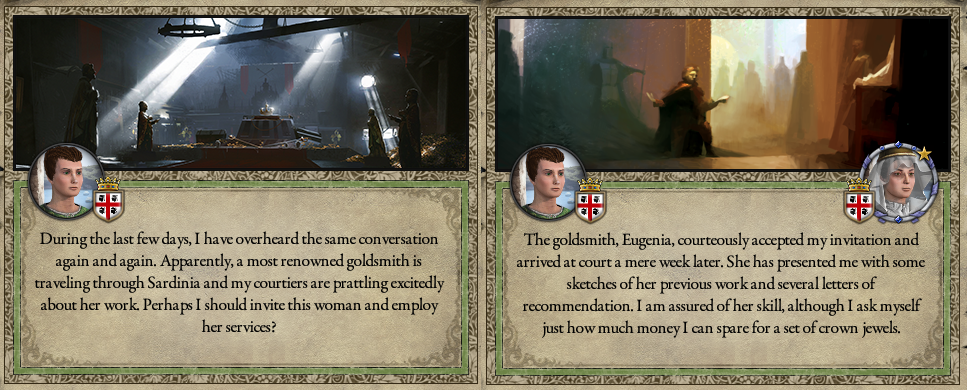
.jpg)
